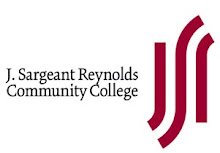Just returned from Amanda's presentation on millennials-- at 27, she's one herself. This group is typically made up of young-uns born from 1980/1982 to 1996/2000, generally just entering the workforce through middle schoolers.
Hmm. 'typically' veers toward missing what's untypical and unique? However, according to the studies, millennials want to be typical: have been described as deeply nurtured by parents (even if the couple is divorced); they are upper middle class: they live by the social norms, expect rules and are comfortable within the boundaries.
Added to the mix, they are not readers of hard copy but get information from the Internet: Facebook, popular search engines. They live in a culture of re-mixing (e.g., the musical pastiche of layered snippets from other works)--so that the ideas of ‘plagiarism’ as we academics understand it is not close to their experience.
Being digital natives, they expect instantaneous responses; they have been described as being in a state of ”continuous partial attention" and are frustrated quickly to get information in the time they want and in the way they want. Millennials like certain forms of 'teamwork': interesting that social networking is interpreted as 'team work' (makes sense).
(Not to paint these millennials as spoiled brats: they hold down responsible part-time jobs, are invited to prestigious internships, study abroad: they have opportunities--not goldenly offered--but worked for in hard earnestness.)
Have I sleuthed out the basics here? So what's this got to do with us instructors? Something I'd call negotiation: in our learning centered classrooms (bricks & mortar or online), we might encourage millennials out of their comfort zones but also for ourselves to emerge to a degree from our comfort zones--meet each other half way.
Some targeted pedagogical techniques might be to incorporate more group work--but turned over to the group to manage -- within boundaries that also offer freedom. Teach in modules that depend on frequent feedback and big doses of encouragement (they expect that, having received the same from doting and sometimes from contending parents competitive for their child's affection). Incorporate Web 2.0 connections (Luckily we have Blackboard 9!).
Thank you, Amanda! Adobe Connect is cool!


Thanks for coming to the presentation! In conjunction with the presentation, I made a library guide: http://libguides.reynolds.edu/millennials
ReplyDeleteI invite everyone to not only share this guide with their colleagues, but also participate in the comments sections!
So what are the students who were born during that time frame who are NOT "upper middle class" and how do we get them to work with Millenials in our classrooms?
ReplyDelete